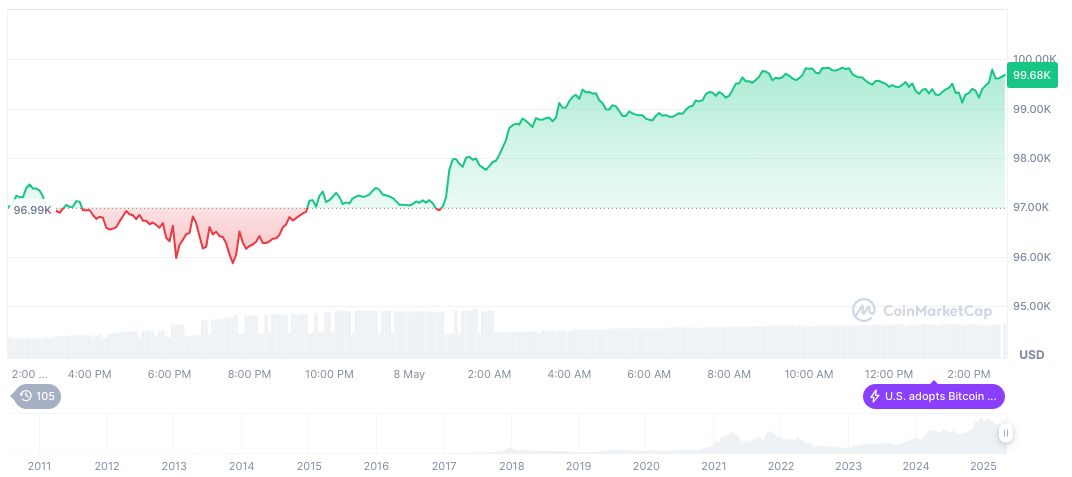- Trump hints at tariff use to open global markets.
- Market impact and leadership responses closely watched.
- Potential shifts in international trade policy outlined.
U.S. President Donald Trump reportedly plans to employ tariff threats to encourage specific countries to open their markets to competition. His remarks were made yesterday, suggesting a strategic pivot in international trade policy.
Trump’s statement underscores a potential shift in U.S. foreign economic strategy. If leveraged, tariffs could lead to trade tensions but may also open markets previously inaccessible to U.S. businesses.
Trump’s Tariff Plan: Economic Ripple Effects
Reports from Jinshi and ChainCatcher highlight Trump’s recent comments, indicating his intent to use tariff threats to open foreign markets to U.S. competition. This approach aligns with previous U.S. strategies but potentially introduces new global trade dynamics.
If implemented, these tariffs could significantly alter international trade relations. Economists predict fluctuations in global market stability, contingent upon responses from targeted countries.
“I’m planning to establish a Bitcoin investment company and working to raise $300 million for this venture.” This highlights the interconnected nature of trade policies and modern financial strategies.
Bitcoin Surge Amid Tariff Discussions
Did you know? In 2018, Trump imposed tariffs on China, which led to a significant shift in global supply chains and trade policies worldwide. The U.S. international trade stance has since dramatically impacted global markets.
According to CoinMarketCap, Bitcoin (BTC) currently trades at $101,098.08, marking a 4.45% increase over the past 24 hours. The cryptocurrency’s market value is $2.01 trillion, dominating 63.82% of the market. Trading volume rose by 72.72% in the last day, indicating heightened investor activity.
The Coincu research team reports that Trump’s tariff strategy could reverberate through global finance sectors. Potential reactions include varied regulatory challenges and adjustments in institutional investment trends. Historically, foreign import policies have triggered both short-term volatility and long-term economic shifts.
Source: https://coincu.com/336408-trump-tariff-threats-global-markets/

